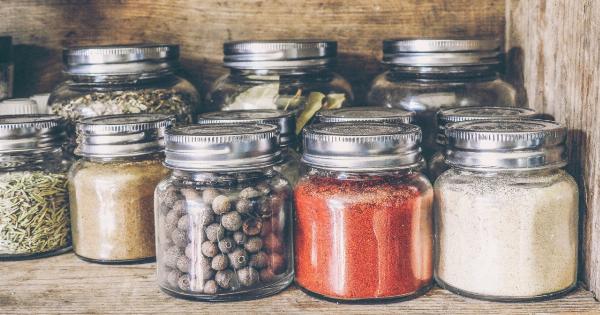Potassium is a vital mineral that plays a crucial role in maintaining overall health and well-being. It is an essential electrolyte that helps in maintaining fluid balance, nerve function, and muscle contractions.
Including potassium-rich foods in your diet can help in reducing the risk of various health conditions such as high blood pressure, stroke, and heart disease. In this article, we will explore some of the best sources of potassium and their caloric values to help you make informed dietary choices.
1. Bananas
Bananas are often hailed as one of the best sources of potassium. A medium-sized banana contains approximately 400-450mg of potassium and is relatively low in calories, with around 100-120 calories per fruit.
They are also rich in fiber, vitamin C, and B vitamins, making them a healthy and nutritious choice for a potassium boost.
2. Sweet Potatoes
Sweet potatoes are not only delicious but also packed with potassium. A medium-sized sweet potato provides around 450-600mg of potassium and is an excellent source of complex carbohydrates, fiber, and beta-carotene.
They are relatively low in calories, with an average-sized sweet potato containing approximately 120-150 calories.
3. Spinach
Spinach is a nutrient powerhouse that offers a generous amount of potassium. One cup of cooked spinach contains approximately 800-900mg of potassium, making it one of the most potassium-dense foods available.
Additionally, spinach is low in calories, with around 30-40 calories per cooked cup, and is rich in vitamins A, C, and K, as well as iron and other minerals.
4. Avocado
Avocado is not only a delicious and versatile fruit but also a great source of potassium. A medium-sized avocado contains around 700-800mg of potassium, along with healthy monounsaturated fats, fiber, and various vitamins and minerals.
However, it is important to note that avocados are relatively high in calories due to their fat content. One medium avocado can have approximately 200-250 calories.
5. Oranges
Oranges are not only refreshing but also a good source of potassium. One medium-sized orange contains approximately 200-250mg of potassium and is relatively low in calories, with around 60-70 calories per fruit.
Oranges are also packed with vitamin C, fiber, and antioxidants, making them a healthy addition to your diet.
6. Yogurt
Yogurt is a potassium-rich dairy product that provides various health benefits. One cup of plain yogurt typically contains around 500-600mg of potassium.
However, it is crucial to choose natural or plain yogurt without added sugars or artificial flavors, as flavored yogurts can often be high in calories and added sugars.
7. Tomatoes
Tomatoes are not only a versatile ingredient in many dishes but also a great source of potassium. One medium-sized tomato contains approximately 250-300mg of potassium and is low in calories, with around 20-25 calories per fruit.
Tomatoes are also rich in vitamins A and C, as well as antioxidants like lycopene.
8. Salmon
Salmon is a potassium-rich fish that also offers a wide range of health benefits. Three ounces of cooked salmon typically contains around 300-400mg of potassium.
It is also an excellent source of omega-3 fatty acids, high-quality protein, and various vitamins and minerals. However, it is important to choose wild-caught salmon for the best nutritional value.
9. White Beans
White beans, including navy beans and cannellini beans, are excellent sources of potassium. Half a cup of cooked white beans can provide around 350-400mg of potassium. They are also high in fiber, protein, and various other nutrients.
However, it is important to note that white beans can be higher in calories compared to other potassium-rich foods, with around 150-200 calories per half-cup serving.
10. Apricots
Apricots are not only delicious but also a fantastic source of potassium. Four to five apricots can provide approximately 300-400mg of potassium. They are also rich in fiber, vitamin A, and antioxidants.
Apricots are relatively low in calories, with each fruit containing around 15-20 calories, making them a great choice for a healthy snack.
Including potassium-rich foods in your diet can be beneficial for overall health and well-being. These foods not only provide a good amount of potassium but also offer various other essential nutrients.
However, it is important to consult with a healthcare professional or a registered dietitian before making any significant changes to your diet, especially if you have any underlying health conditions.





























